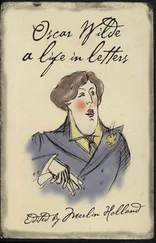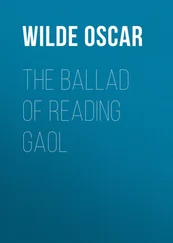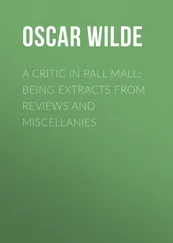Oscar Wilde - Reviews
Здесь есть возможность читать онлайн «Oscar Wilde - Reviews» — ознакомительный отрывок электронной книги совершенно бесплатно, а после прочтения отрывка купить полную версию. В некоторых случаях можно слушать аудио, скачать через торрент в формате fb2 и присутствует краткое содержание. Жанр: foreign_home, literature_19, cinema_theatre, foreign_prose, на английском языке. Описание произведения, (предисловие) а так же отзывы посетителей доступны на портале библиотеки ЛибКат.
- Название:Reviews
- Автор:
- Жанр:
- Год:неизвестен
- ISBN:нет данных
- Рейтинг книги:3 / 5. Голосов: 1
-
Избранное:Добавить в избранное
- Отзывы:
-
Ваша оценка:
- 60
- 1
- 2
- 3
- 4
- 5
Reviews: краткое содержание, описание и аннотация
Предлагаем к чтению аннотацию, описание, краткое содержание или предисловие (зависит от того, что написал сам автор книги «Reviews»). Если вы не нашли необходимую информацию о книге — напишите в комментариях, мы постараемся отыскать её.
Reviews — читать онлайн ознакомительный отрывок
Ниже представлен текст книги, разбитый по страницам. Система сохранения места последней прочитанной страницы, позволяет с удобством читать онлайн бесплатно книгу «Reviews», без необходимости каждый раз заново искать на чём Вы остановились. Поставьте закладку, и сможете в любой момент перейти на страницу, на которой закончили чтение.
Интервал:
Закладка:
’Tis the subtle essayal
Of the Jews and Judas,
Such lying lisp
Might hail a will-o’-the-wisp,
A thin somebody – Theudas —
is an excellent example of low comedy in poetry. One of the best poems in the book is The Ballad of Three Kingdoms . Indeed, if the form were equal to the conception, it would be a delightful work of art; but Dr. Goodchild, though he may be a master of metres, is not a master of music yet. His verse is often harsh and rugged. On the whole, however, his volume is clever and interesting.
Mr. Keene has not, we believe, a great reputation in England as yet, but in India he seems to be well known. From a collection of criticisms appended to his volume it appears that the Overland Mail has christened him the Laureate of Hindostan and that the Allahabad Pioneer once compared him to Keats. He is a pleasant rhymer, as rhymers go, and, though we strongly object to his putting the Song of Solomon into bad blank verse, still we are quite ready to admire his translations of the Pervigilium Veneris and of Omar Khayyam. We wish he would not write sonnets with fifteen lines. A fifteen-line sonnet is as bad a monstrosity as a sonnet in dialogue. The volume has the merit of being very small, and contains many stanzas quite suitable for valentines.
Finally we come to Procris and Other Poems , by Mr. W. G. Hole. Mr. Hole is apparently a very young writer. His work, at least, is full of crudities, his syntax is defective, and his grammar is questionable. And yet, when all is said, in the one poem of Procris it is easy to recognise the true poetic ring. Elsewhere the volume is amateurish and weak. The Spanish Main was suggested by a leader in the Daily Telegraph , and bears all the traces of its lurid origin. Sir Jocellyn’s Trust is a sort of pseudo-Tennysonian idyll in which the damozel says to her gallant rescuer, ‘Come, come, Sir Knight, I catch my death of cold,’ and recompenses him with
What noble minds
Regard the first reward, – an orphan’s thanks.
Nunc Dimittis is dull and The Wandering Jew dreadful; but Procris is a beautiful poem. The richness and variety of its metaphors, the music of its lines, the fine opulence of its imagery, all seem to point to a new poet. Faults, it is true, there are in abundance; but they are faults that come from want of trouble, not from want of taste. Mr. Hole shows often a rare and exquisite sense of beauty and a marvellous power of poetic vision, and if he will cultivate the technique of his craft a little more we have no doubt but that he will some day give us work worthy to endure. It is true that there is more promise than perfection in his verse at present, yet it is a promise that seems likely to be fulfilled.
(1) Stories of Wicklow . By George Francis Armstrong, M.A. (Longmans, Green and Co.)
(2) Somnia Medici . By John A. Goodchild. Second Series. (Kegan Paul.)
(3) Verses : Translated and Original . By H. E. Keene. (W. H. Allen and Co.)
(4) Procris and Other Poems . By W. G. Hole. (Kegan Paul.)
SOME NOVELS
( Pall Mall Gazette , April 14, 1886.)
After a careful perusal of ’ Twixt Love and Duty , by Mr. Tighe Hopkins, we confess ourselves unable to inform anxious inquirers who it is that is thus sandwiched, and how he (or she) got into so unpleasant a predicament. The curious reader with a taste for enigmas may be advised to find out for himself – if he can. Even if he be unsuccessful, his trouble will be repaid by the pleasant writing and clever character drawing of Mr. Hopkins’s tale. The plot is less praiseworthy. The whole Madeira episode seems to lead up to this dilemma, and after all it comes to nothing. We brace up our nerves for a tragedy and are treated instead to the mildest of marivaudage – which is disappointing. In conclusion, one word of advice to Mr. Hopkins: let him refrain from apostrophising his characters after this fashion: ‘Oh, Gilbert Reade, what are you about that you dally with this golden chance?’ and so forth. This is one of the worst mannerisms of a bygone generation of story tellers.
Mr. Gallenga has written, as he says, ‘a tale without a murder,’ but having put a pistol-ball through his hero’s chest and left him alive and hearty notwithstanding, he cannot be said to have produced a tale without a miracle. His heroine, too, if we may judge by his descriptions of her, is ‘all a wonder and a wild desire.’ At the age of seventeen she ‘was one of the Great Maker’s masterpieces.. a living likeness of the Dresden Madonna.’ One rather shudders to think of what she may become at forty, but this is an impertinent prying into futurity. She hails from ‘Maryland, my Maryland!’ and has ‘received a careful, if not a superior, education.’ Need we add that she marries the heir to an earldom who, as aforesaid, has had himself perforated by a pistol-bullet on her behalf? Mr. Gallenga’s division of this book into acts and scenes is not justified by anything specially dramatic either in its structure or its method. The dialogue, in truth, is somewhat stilted. Nevertheless, its first-hand sketches of Roman society are not without interest, and one or two characters seem to be drawn from nature.
The Life’s Mistake which forms the theme of Mrs. Lovett Cameron’s two volumes is not a mistake after all, but results in unmixed felicity; and as it is brought about by fraud on the part of the hero, this conclusion is not as moral as it might be. For the rest, the tale is a very familiar one. Its personages are the embarrassed squire with his charming daughter, the wealthy and amorous mortgagee, and the sailor lover who is either supposed to be drowned or falsely represented to be fickle – in Mrs. Cameron’s tale he is both in succession. When we add that there is a stanza from Byron on the title-page and a poetical quotation at the beginning of each chapter, we have possessed the discerning reader of all necessary information both as to the matter and the manner of Mrs. Cameron’s performance.
Mr. E. O. Pleydell-Bouverie has endowed the novel-writing fraternity with a new formula for the composition of titles. After J. S .; or , Trivialities there is no reason why we should not have A. B .; or , Platitudes , M.N .; or , Sentimentalisms , Y.Z .; or , Inanities . There are many books which these simple titles would characterise much more aptly than any high-flown phrases – as aptly, in fact, as Mr. Bouverie’s title characterises the volume before us. It sets forth the uninteresting fortunes of an insignificant person, one John Stiles, a briefless barrister. The said John falls in love with a young lady, inherits a competence, omits to tell his love, and is killed by the bursting of a fowling-piece – that is all. The only point of interest presented by the book is the problem as to how it ever came to be written. We can scarcely find the solution in Mr. Bouverie’s elaborately smart style which cannot be said to transmute his ‘trivialities’ into ‘flies in amber.’
Mr. Swinburne once proposed that it should be a penal offence against literature for any writer to affix a proverb, a phrase or a quotation to a novel, by way of tag or title. We wonder what he would say to the title of ‘Pen Oliver’s’ last book! Probably he would empty on it the bitter vial of his scorn and satire. All But is certainly an intolerable name to give to any literary production. The story, however, is quite an interesting one. At Laxenford Hall live Lord and Lady Arthur Winstanley. Lady Arthur has two children by her first marriage, the elder of whom, Walter Hope-Kennedy by name, is heir to the broad acres. Walter is a pleasant English boy, fonder of cricket than of culture, healthy, happy and susceptible. He falls in love with Fanny Taylor, a pretty village girl; is thrown out of his dog-cart one night through the machinations of a jealous rival, breaks one of his ribs and gets a violent fever. His stepfather tries to murder him by subcutaneous injections of morphia but is detected by the local doctor, and Walter recovers. However, he does not marry Fanny after all, and the story ends ineffectually. To say of a dress that ‘it was rather under than over adorned’ is not very pleasing English, and such a phrase as ‘almost always, but by no means invariably,’ is quite detestable. Still we must not expect the master of the scalpel to be the master of the stilus as well. All But is a very charming tale, and the sketches of village life are quite admirable. We recommend it to all who are tired of the productions of Mr. Hugh Conway’s dreadful disciples.
Читать дальшеИнтервал:
Закладка:
Похожие книги на «Reviews»
Представляем Вашему вниманию похожие книги на «Reviews» списком для выбора. Мы отобрали схожую по названию и смыслу литературу в надежде предоставить читателям больше вариантов отыскать новые, интересные, ещё непрочитанные произведения.
Обсуждение, отзывы о книге «Reviews» и просто собственные мнения читателей. Оставьте ваши комментарии, напишите, что Вы думаете о произведении, его смысле или главных героях. Укажите что конкретно понравилось, а что нет, и почему Вы так считаете.












